
FranklinCovey Resource Center
We enable greatness in people and organizations everywhere.
Culture Transformation
Explore all of our personal and professional development resources for individuals and organizations.
-
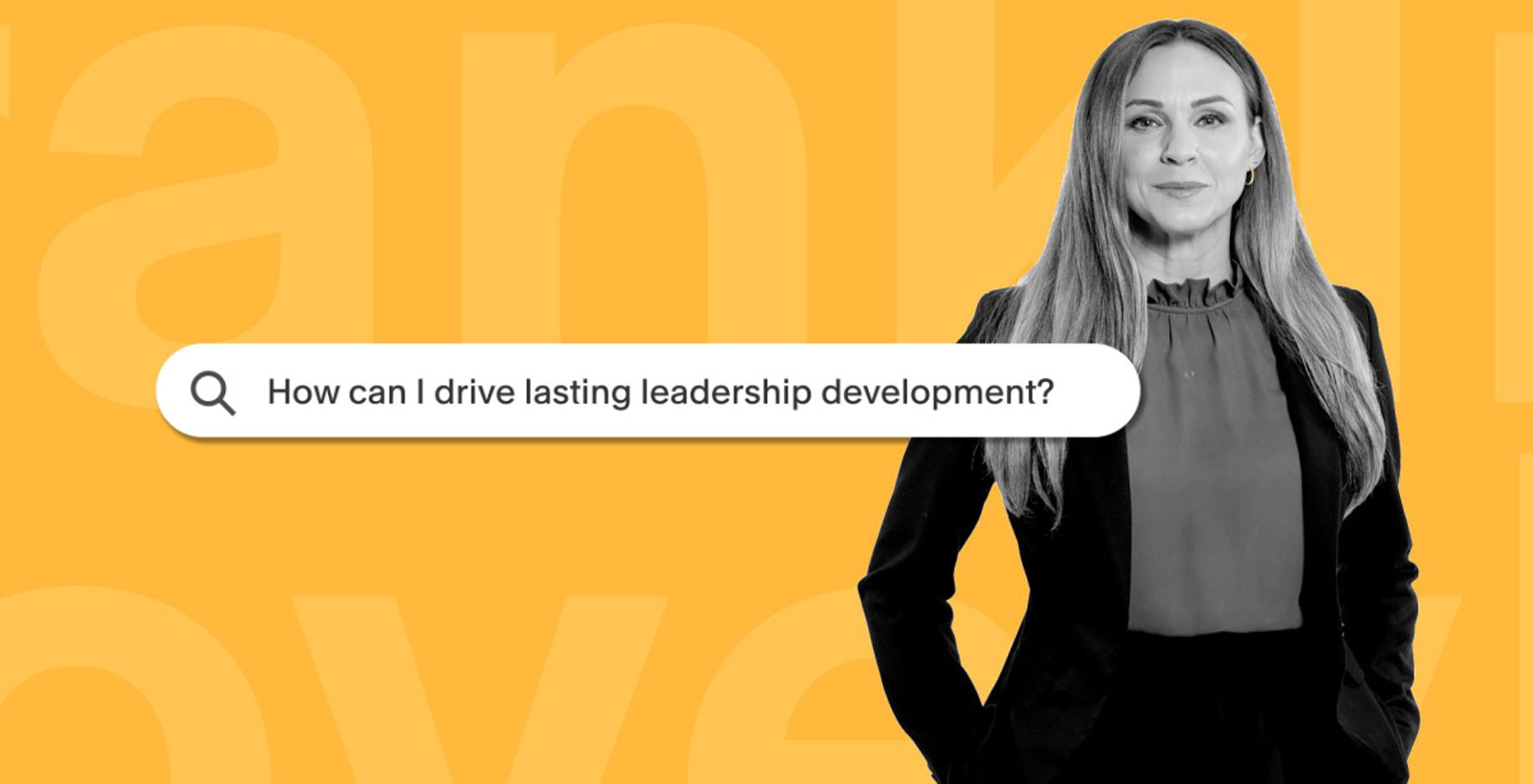 Read More
Read MoreBlog: 3 Ways to Drive Lasting Leadership Development
To develop leaders with the character and mindset to succeed, as well as the skills needed to navigate challenging times, learning and development (L&D) teams need to invest in solutions that drive behavior change. But what kind of programs actually lead to your team acting differently in ways that make a lasting impact?
-
 Read More
Read MoreBlog: I’d like to ensure I’m making the most out of my 1-on-1s with my direct reports.
Suppose you are given $10,000 and told to invest it for the greatest return over time. Five years from now, you can keep the profits. How much time would you spend on that investment?
-
 Read More
Read MoreBlog: I need to develop my communication skills to have better interactions at work.
-
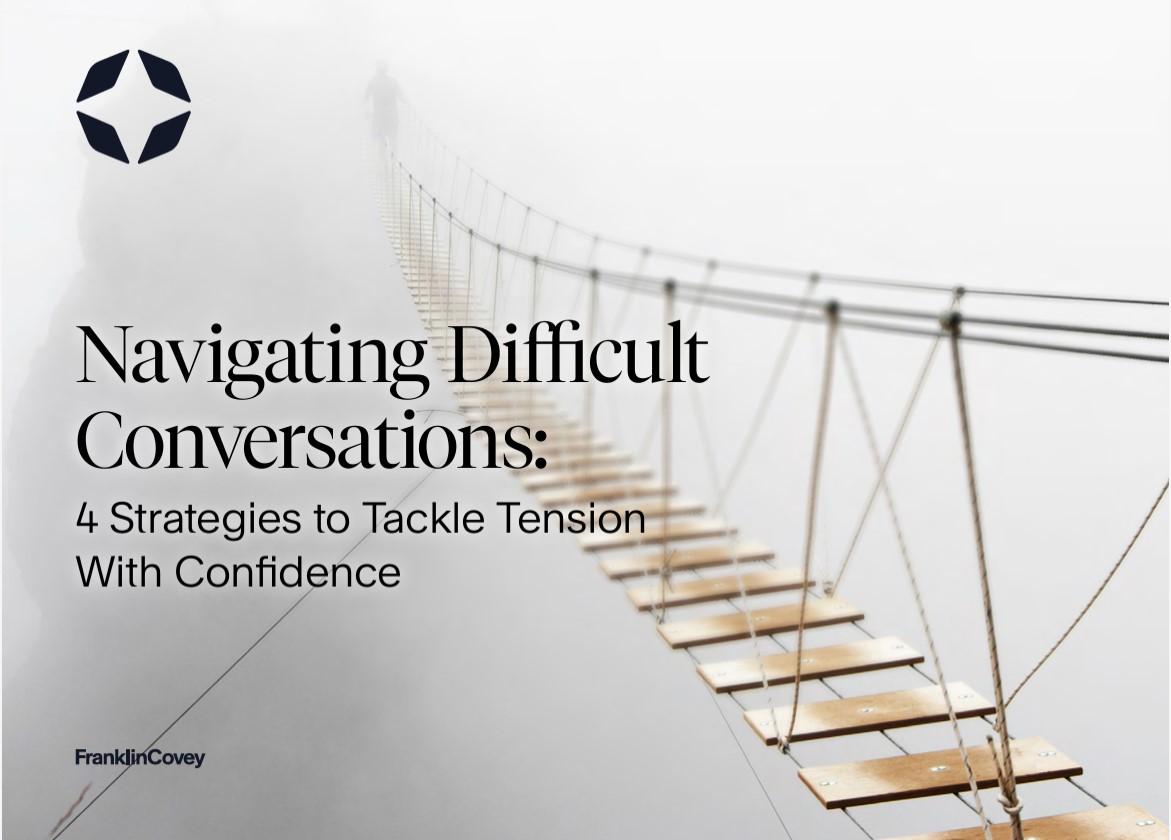 Read More
Read MoreGuide: 4 Strategies to Tackle Tension With Confidence
Mastering the art of navigating difficult conversations is a fundamental skill for every member of your organization, but research shows that 65% of individuals stress about handling them. Many people attempt to avoid them, but difficult conversations are inevitable. In fact, it’s likely you’ve already faced a challenging discussion today.
-
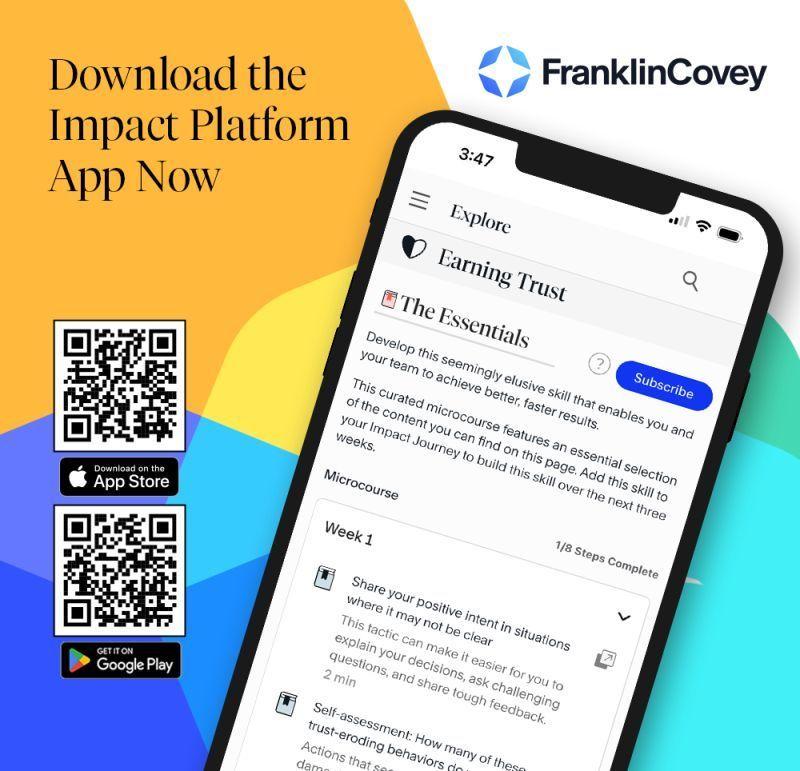 Read More
Read MoreWhat's New On FranklinCovey's Impact Platform
FranklinCovey provides a unique combination of content, people, and technology. By seamlessly integrating all three, our solutions create collective action in ways that lead to breakthrough results for your organization and culture where all people can show up authentically and do their very best work.
-
 Read More
Read MoreBlog: I’m Constantly Interrupted, So I Can’t Get My Important Work Done.
If you’re in the office, you’re at the mercy of people who wander up to your desk. If you’re remote, it can be phone calls, video chats and noisy pets or delivery people. The interruptions might be valid, but they steal the focus needed to accomplish your most important priorities. A simple structure can put you back in control instead of letting others determine your schedule.
-
 Read More
Read MoreBlog: I want to motivate my team to get the most important things done.
Why is it vital for leaders to know how to properly motivate their teams? When projects come up that are uninteresting or if a project goes from fun to frustrating, leadership can light a fire under their employees to push the limits on projects. Think of a leader who helped you see the value of what you are doing or energized you to do your best despite challenging circumstances. It changes people from going through the motions to bringing out their best work.
-
 Read More
Read MoreBlog: Manage Your Time and Energy Effectively
When there’s too much to do, some things on your task list will inevitably remain undone. You can frantically try to do everything and wait to see which things fall through the cracks—or you can give yourself a reprieve by deciding ahead of time what to prioritize.
-
 Read More
Read MoreBlog: Inclusive Actions for Growing Inclusive Teams
For leaders who want to be more inclusive, it can be daunting to know where to start. One thing is certain: behavioral change is a powerful force in building inclusive leadership. When leaders make intentional choices to move beyond the status quo, they can become DEI catalysts within their own organizations, championing a new approach that positively impacts your organization’s culture, team engagement, and overall results.
-
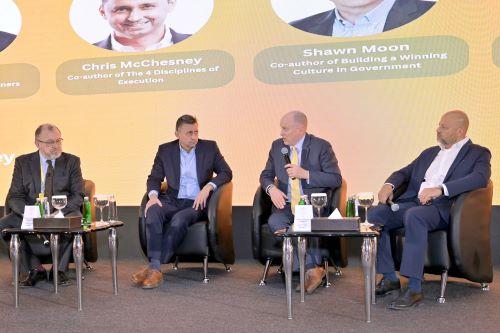 Read More
Read MorePress Release : FranklinCovey Middle East Launches Saudi Government Strategy Forum
Saudi government strategy forum offered a unique platform for leaders from the public sector in Saudi Arabia to engage in thought-provoking discussions, share best practices, and explore innovative strategies for effective governance and leadership. At the heart of the forum was the shared vision of transforming government entities through proven leadership principles and execution strategies.
-
 Read More
Read MoreBlog: We’d like to build a high-trust culture where great ideas are cultivated.
An award-winning garden doesn’t start with seeds; it begins with rich, fertile soil. If the soil is lacking, the seeds won’t produce a good crop. Both are essential, but one is dependent on the other. In the same way, creativity and innovation don’t happen on teams where the culture isn’t healthy. They happen when there’s high trust among team members, where they value and respect each other. High trust sets the stage for high innovation; low trust ensures mediocre results. Want great idea
-
 Read More
Read MoreBlog: I can’t decide which of our many goals are the highest priority and where to focus our time.
Confucius said, “He who chases two rabbits, catches neither.” We know that in most areas of life, focus leads to accomplishment. Too many goals usually means that nothing gets done, since your energy is split in so many directions. The more you can narrow those goals, the better chance of success.
-
 Read More
Read MoreBlog: We need a culture that’s so strong that competitors can’t lure our people away.
Culture is hard to define but huge in terms of its impact on an organization. When people are part of a culture they like, it’s often hard for them to describe exactly how the culture works. They just know it’s something they feel good about and want to be part of it. If they don’t like the culture, it’s also hard to describe, but people will point out specific things they don’t like.
-
 Read More
Read Moreتجربة عميل: أرامكو روان للحفر
شركة أرامكو روان للحفر البحري في المملكة العربية السعودية هي شركة رائدة عالمياً في مجال الحفر البحري، حيث تمتلك وتشغل أسطولًا من منصات الحفر الجاك-أب ذات المواصفات العالية والمتميزة. تسعى الشركة جاهدةً لتطوير وتعزيز مهارات القادة وأفراد الفرق العاملة لديها بهدف الاستفادة القصوى من إمكانياتهم والتميز في مجال القيادة، وذلك لتلبية احتياجات الأعمال بفاعلية وتحقيق تفوق تنافسي.
-
 Read More
Read Moreمقال: كيف تلهم أفراد فريقك
بعض الأشخاص يصبحون قادة نتيجة لكفاءتهم في القيام بمهامهم كمساهمين فرديين. فيما هناك بعض آخرون ينطلقون نحو القيادة بشكل متعمد. في كلا الحالتين، غالبًا ما يُتوقع منهم أن يؤدوا هذا الدور بامتياز، ولكن، دون أن يتلقوا التدريب المناسب.
-
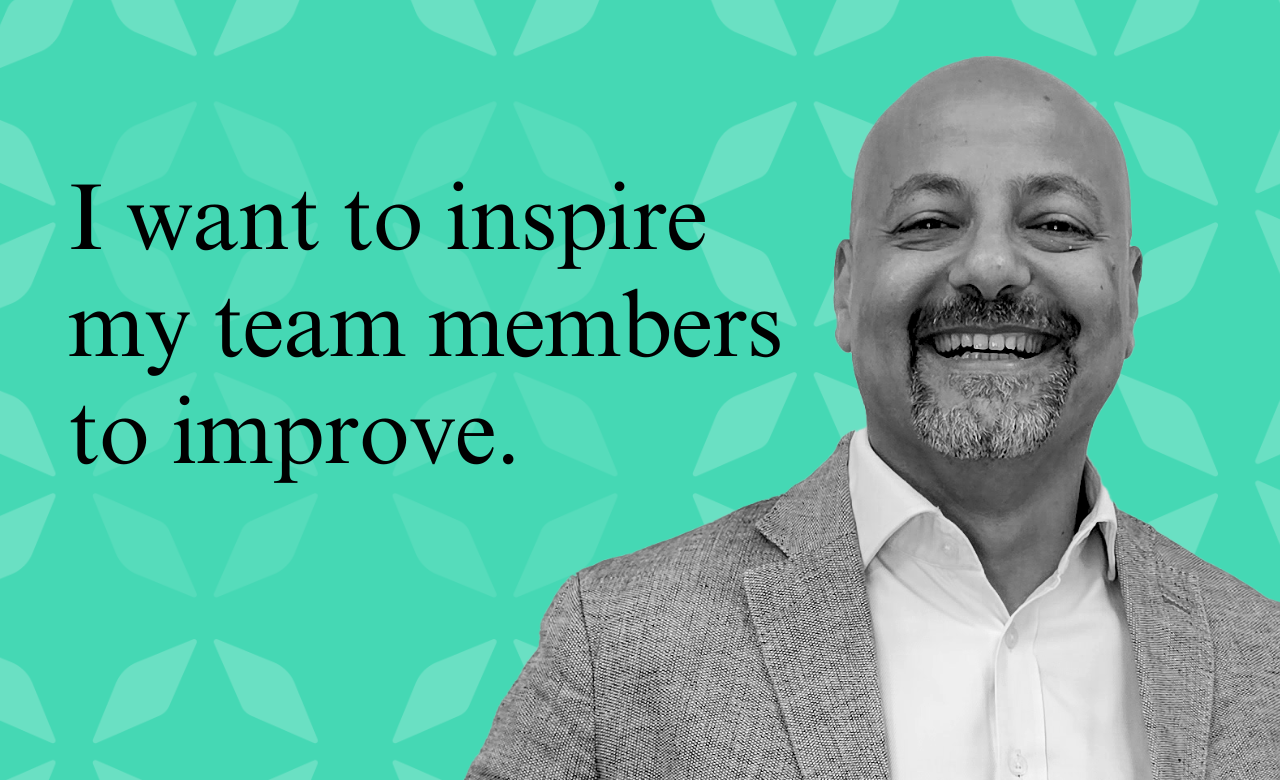 Read More
Read MoreBlog: How To Inspire Your Team
Some people become leaders because they are good at their job as individual contributors. Others are intentional about moving into leadership. In both cases, they’re often expected to perform that role with excellence but haven’t been given appropriate training.
-
 Read More
Read MoreBlog: How to Support Your Team During High-stress Situations?
Some jobs are more stressful than others. But in today’s world of “doing more with less,” high stress has become the norm. People might work hard during the day, but they’re running on empty by the end of the day. It impacts their sleep and their home life, and they’re looking for an escape.
-
Read More
Blog: We need to define and measure our most important goals
A parent tells their kids, “I have a family goal for this year: We’re going to go on a vacation.” When the kids ask “Where,” the parent says, “Oh, I don’t know. But we’ll go someplace.” It’ll be hard for the kids to get excited without defining what that vacation looks like. If the parent says, “We’re flying to Disney World and will spend five days there,” the kids know exactly what’s coming. They’re excited, and they start thinking and planning for the trip.
-
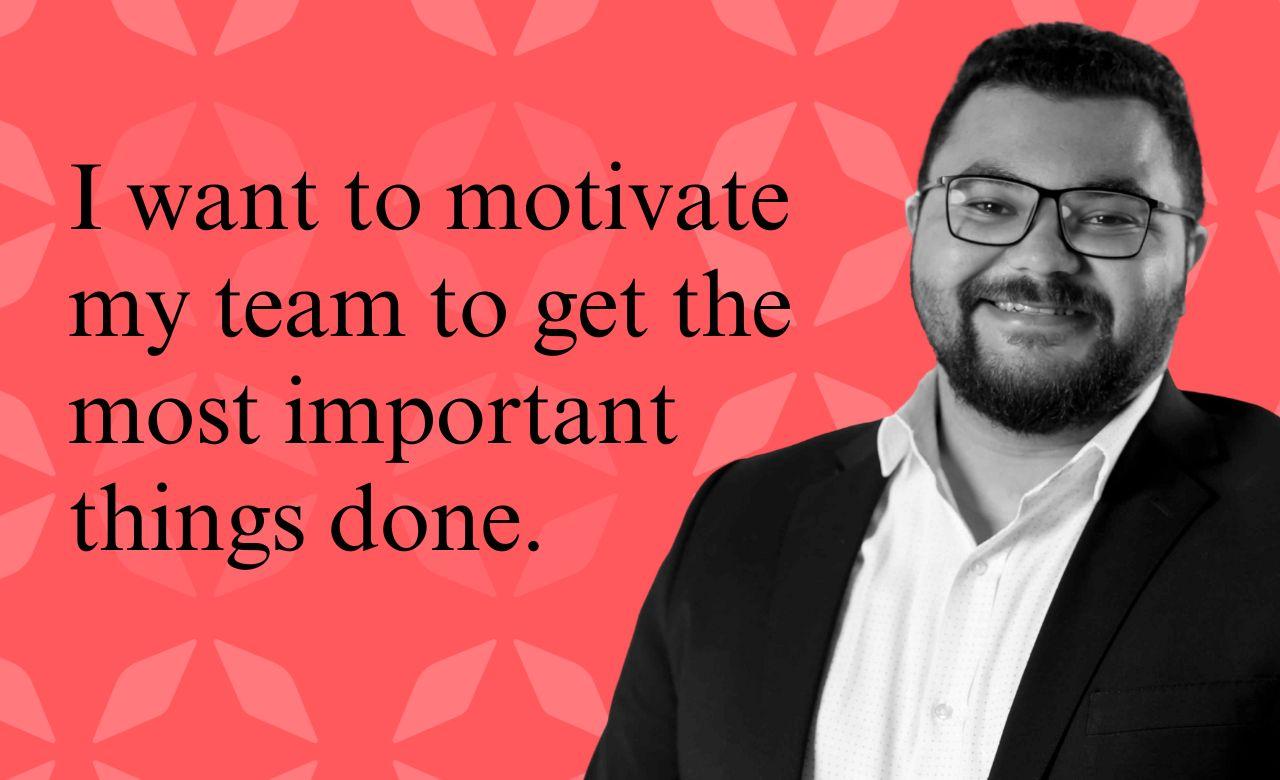 Read More
Read MoreBlog: I want to motivate my team to get the most important things done.
Why is it vital for leaders to know how to properly motivate their teams? When projects come up that are uninteresting or if a project goes from fun to frustrating, leadership can light a fire under their employees to push the limits on projects. Think of a leader who helped you see the value of what you are doing or energized you to do your best despite challenging circumstances. It changes people from going through the motions to bringing out their best work.
-
 Read More
Read MoreBlog: I’m struggling to hire and retain top talent.
The interview goes well, and you feel like you’ve made a good hire. But within a few weeks, you realize they just aren’t going to work out. At the same time, some of your best people are being poached by competitors. What can you do to hire great people who stick around?
-
 Read More
Read MoreBlog: I want to bring out people’s best efforts and ideas.
Some leaders walk into a room, and everyone benefits. They believe everyone has their own unique genius, and it’s that leader’s job to recognize it and expand it. Those leaders are what Liz Wiseman calls “Multipliers” in her bestselling book by the same name. People volunteer their best efforts, come up with new ideas and find creative solutions to problems.

